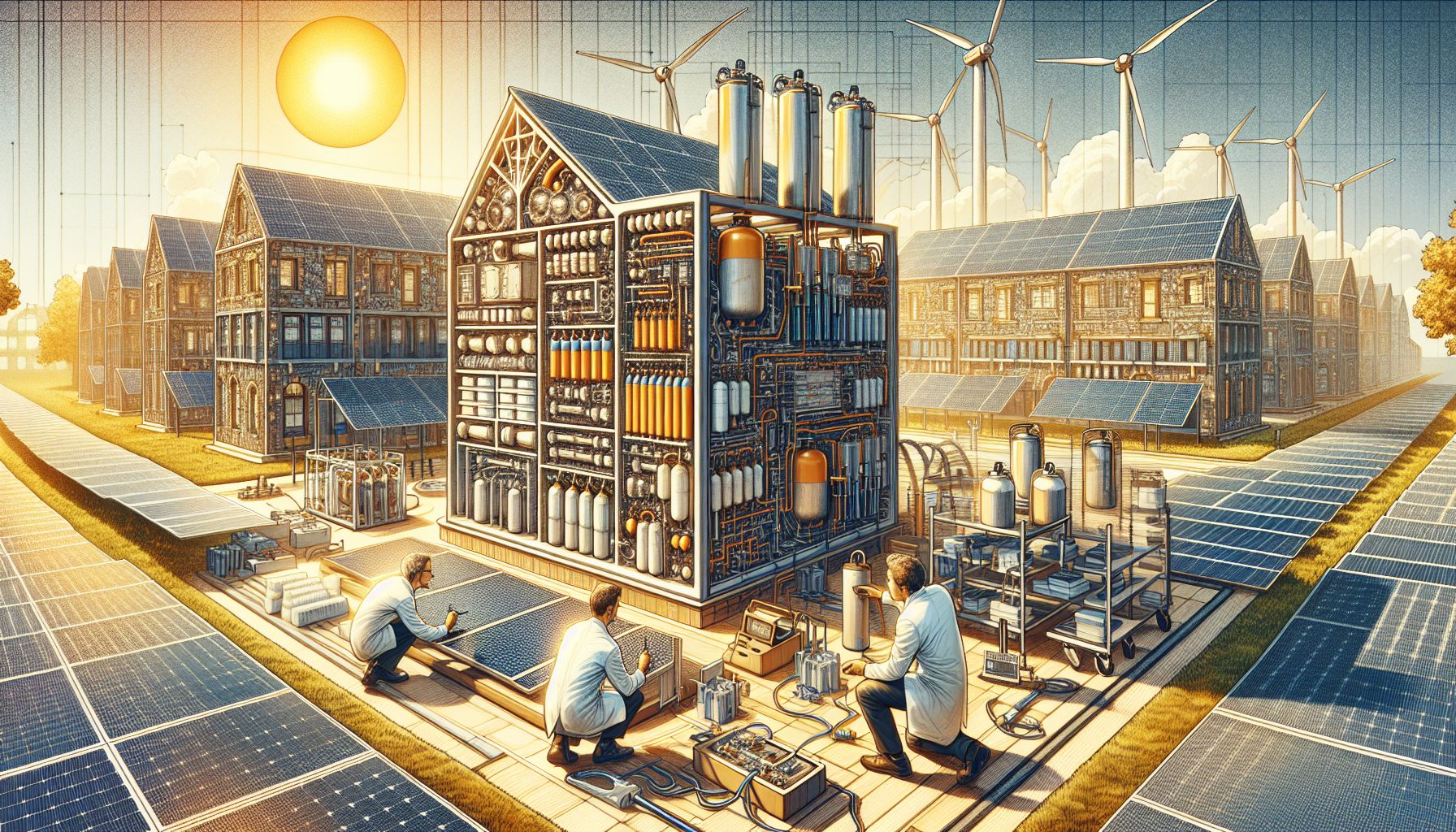new hybrid hydrogen-battery system introduced for off-grid pv-powered homes

Researchers have developed a system combining hydrogen storage and batteries to provide reliable energy for off-grid homes, despite the high initial costs.
Innovative Energy Solution
Researchers at Hanze University of Applied Sciences in Groningen, the Netherlands, have proposed a groundbreaking hybrid hydrogen-battery system designed specifically for off-grid homes powered by photovoltaic (PV) panels or small wind turbines. This innovative system addresses the challenge of storing surplus renewable electricity by using a combination of hydrogen generation and battery storage to ensure a reliable energy supply year-round.
System Components and Functionality
The system comprises several key components: a 4.5 kW PEM hydrogen electrolysis system, a 0.85 m³ hydrogen storage tank, a 0.8 kW purification unit, a PEM hydrogen fuel cell, and a lithium-ion battery. The primary function of the battery is to store energy when renewable power is insufficient for the electrolyzer to operate. The hydrogen produced is stored and then used in a fuel cell to generate electricity when needed. The pressure control valve in the system can set the output pressure of the hydrogen to almost 50 bar without external means, ensuring efficient energy management.
Performance and Cost Efficiency
Simulations conducted for a typical Dutch house with an annual demand of 4 MWh revealed that the optimal configuration for the PV source includes a 2.65 kW solar array with a tilt angle of 35 degrees and an azimuth angle of 180 degrees. Researchers suggest that downsizing the electrolyzer to a power range between 1,550 W and 2,000 W, combined with a 3 kW battery capacity, could reduce costs. The system demonstrated stable operation despite its high initial costs, offering a sustainable and reliable solution for off-grid households.
Comparison with Other Systems
Similar innovations, such as the Picea system by HomePowerSolutions in Germany, highlight the growing interest in hybrid hydrogen-battery systems. Picea provides CO₂-free electricity year-round, using solar power for hydrogen generation and integrating short-term battery storage for day-night energy needs. This system includes an electrolyzer, fuel cell, 17 kWh battery, and hybrid inverter, showcasing a comprehensive approach to energy independence and sustainability.
Future Implications and Research
Future research recommendations from the Dutch researchers include testing the hybrid system on a larger scale or integrating it with heat production systems. Such advancements could further enhance the efficiency and cost-effectiveness of hydrogen-battery systems, making them a viable option for more households. As the world continues to seek sustainable energy solutions, these innovations represent significant steps towards reducing reliance on fossil fuels and mitigating climate change.
Bronnen
- www.pv-magazine.com
- www.homepowersolutions.de
- www.plugpower.com
- www.novar.nl
- www.mdpi.com
- research.csiro.au

